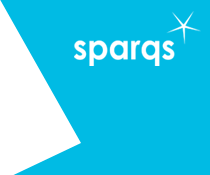In early 2019 we began scoping out a new project related to student mental health and wellbeing. It had become apparent through our ongoing conversations with student officers and institutional staff that this was a top priority across the sector and we wanted to respond, but we were initially unclear as to how a project like this would fit into the work we do in the sector.
National statistics also clearly demonstrated the prevalence of the issue; 47,625 more students disclosed a mental health condition in 2015-16 compared to 2007-08. As a result, institutions are struggling to cope with the demand for support; over the past five years, 94% of UK universities have experienced a sharp increase in the number of people trying to access support services, with some institutions noticing a threefold increase.
Over recent years, several reports (e.g. Student Mental Wellbeing in Higher Education: Good Practice Guide [Universities UK], and Not by Degrees: Improving Student Mental Health in the UK's Universities [Institute for Public Policy Research]) have emphasised the need for institutions to adapt an institution-wide approach to ensure proper support for student mental health and wellbeing.
With all these contributing factors in mind we began to develop our project: ‘Student Mental Wellbeing: A Learning and Teaching Perspective’.
We were encouraged by the report ‘Embedding Mental Wellbeing in the Curriculum: Maximising Success in Higher Education’ published by the Higher Education Academy (now known as Advance HE). This report made us consider how we could look at student mental wellbeing from a learning and teaching perspective and provide alternative streams of work for those who sit outside of traditional student support/counselling roles but nevertheless can still have a role in supporting and developing good mental wellbeing amongst students.
Our project is focused on how we can support institutions to become more proactive in supporting and promoting positive student mental wellbeing across the learning experience, hopefully helping to reduce the need for responsive firefighting when issues are already established. We are looking to support institutions and students’ associations to work together to embed student mental wellbeing into areas such as curriculum design, learning and teaching developments, assessment & feedback, and quality assurance and enhancement processes.
The project has involved extensive desk-based research as well as connecting with others around the UK working on similarly themed projects, including colleagues at NUS Think Positive and their work on Student Mental Health Agreements.
We also hosted four workshops at different events throughout summer 2019 to gather information and feedback from the sector. We asked participants two key questions; what the barriers and challenges around student mental wellbeing from a learning and teaching perspective were, and what were some of the possible solutions and interventions that could address these.
Around 130 staff and students from across the sector participated in the four workshops:
- CDN’s College Expo
- sparqs’ That’s Quality Universities
- sparqs’ That’s Quality Colleges
- NUS Scotland’s The Gathering
The workshop is designed using our existing Student Learning Experience (SLE). The activity centres around the seven areas of the SLE and includes questions and prompts to encourage participates to think about both barriers and solutions.
With the feedback from the workshops we have started to analyse the data and are producing an initial findings report that will explore the key themes identified by students and staff across all seven areas of the student learning experience. The report is due to be published in Summer 2020.
Next Steps:
We have formed a small working group with student and staff members from both colleges and universities. The working group is meeting throughout 2019-20 to develop mini projects which are beginnning to tackle some of the issues and challenges identified from the workshops and analysis of the data. This will be used as a starting point to produce materials for the sector to help institutions and students’ associations work together to develop initiatives to support student mental health and wellbeing.
We are presenting on the project at several conferences during 2019-20, including Scotland’s Student Mental Health Conference on 11th May 2020, and Advance HE’s Equality, Diversity and Inclusion Conference on 17th-19th March 2020.
We have recently joined a QAA Scotland Enhancement Theme Collaborative Cluster, led by Glasgow Caledonian University. The cluster ‘Building the capacity of academic staff to create environments that are inclusive and promote student mental wellbeing’ aims to build the capacity of academic staff to design curricula and create teaching and learning environments that are inclusive and promote student mental wellbeing. This will include hosting two events in 2020; one for senior staff members and student leaders and another for programme leaders and class reps. More details will be released towards the end of the year.
If you would like to find out more about the project and our research, or if you would like to be involved in the working group, please contact Gloria Laurini.


